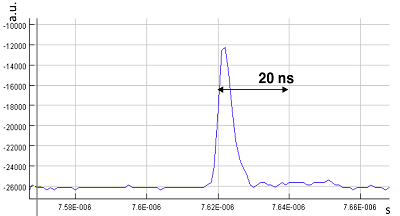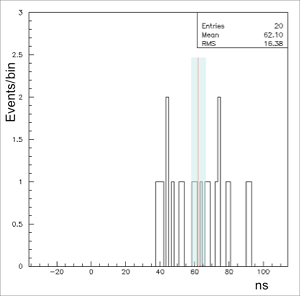This kind of weather is not uncommon in Ottawa, but I still think it’s weird when the forecast low for tonight (10°C) is 12 degrees higher than the forecast “high” Wednesday mid-afternoon (−2°C).
I finally completed the task of moving my personal Web site to a content management system (Joomla!). It turned out to be a much bigger task than I anticipated; a lot of stuff accumulated on my site over the years, and some of it, like my Seas of Mars Java applet, is interactive content and it was a bit of a struggle to make these pages compatible with the CMS code. Still, I’m glad it’s done… my site is my way of introducing myself to the world, and it looks like I’ll be in need of doing some introducing, as some of my long-term clients are slowly leaving the picture.
BYTE was once the most influential computer magazine. I, too, was an avid reader. But the old BYTE is long gone, and an attempt to revive it as a subscription-based service also ended a few years ago.
But now, much to my surprise, I am finding BYTE alive and well again, as a beta site ran by Information Week. How could I have missed this? Even Jerry Pournelle is back, with his venerable Chaos Manor opinion column. Yay!
2012 is supposed to be the year when the world comes to an end, courtesy of a stray planet or something. No, this is not something that I worry about, not the least bit.
Yet the world as we know it may still come to an end of sorts. Here are some of the things I do worry about:
- Germany is having trouble raising cash. This alarming news may mark the beginning of the end for the Euro, triggering a massive worldwide depression.
- A collapse of the Eurozone may trigger a collapse of the Chinese economic bubble. The consequences of an economic depression in China are unimaginable.
- Recently, a successful SCADA attack on a water plant in the US was confirmed. Perhaps in 2012 we shall see the first large scale SCADA attack on some essential infrastructure in the United States or Western Europe. How Western governments might respond is anyone’s guess.
- Israel may actually commit an act of utmost self-destructive stupidity and attack Iran.
Thankfully, there is one item that I can strike out from my list: it seems increasingly unlikely that one of the tea party fundamentalists would win the Republican nomination in the United States and go on to defeat Barack Obama. Obama may end up a one-term president, but if he is defeated by a Gingrich or a Romney, I’d know that at the very least, an adult remains in charge of the White House.
For months, a melody was stuck in my head and I just couldn’t identify it. Finally this morning, I suddenly remembered a fragment of its lyrics: “All my love, all my love, all my love to you”, and that was enough for a successful Google search. Of course. It’s All My Love by Led Zeppelin.
Now I know. It’s a darn good song, by the way.
Operating systems can be so infuriating.
Ages ago, I used to have a CD-changer type CD-ROM drive into which I could load four CD-ROMs, each of which appeared under its own drive letter. This was very convenient, except for one thing: every so often, when a program (usually needlessly) enumerated the drives on my system, Windows insisted on sequentially loading all four disks: clickety-click, buzz-buzz, vrooooom, cli-click, cli-click, swoosh, clack… clickety-click, buzz-buzz, vrooooom, cli-click, cli-click, swoosh, clack… clickety-click, buzz-buzz, vrooooom, cli-click, cli-click, swoosh, clack… clickety-click, buzz-buzz, vrooooom, cli-click, cli-click, swoosh, clack… Yes, I can still hear it in my mind. And while this was taking place, the program in question was usually unresponsive; if the program happened to be Windows Explorer, my entire desktop would stay frozen for a while.
I no longer use this CD changer, but I do use several external hard drives. External hard drives that spin down when not in use, reducing wear and saving energy. But every so often, programs insist on enumerating all drive letters, and guess what… Here we go again. Cli-click, zip, woosh, click-a-tick… cli-click, zip, woosh, click-a-tick… cli-click, zip, woosh, click-a-tick… cli-click, zip, woosh, click-a-tick… cli-click, zip, woosh, click-a-tick… cli-click, zip, woosh, click-a-tick… cli-click, zip, woosh, click-a-tick…
The infuriating bit is that these enumerations are most of the time totally unnecessary. They happen, for instance, when all I am doing is clicking inadvertently on a drop-down containing a list of folders… to list drive letters (not their contents!)
OK. A while back, I promised myself that I’ll never maintain a list of things I hate, as that is one surefire way to become a grumpy old man, and this instance is no exception. So rather than grumble about it, I am now test driving an idea: mounting the drives in question under folder names, instead of assigning them drive letters. I can already see one downside: Western Digital’s helpful little utility, the WD Drive Manager (which I use because it keeps me informed about the drives’ health status) doesn’t really like it when drives do not have letters assigned to them. It’s blinking in the taskbar incessantly. Nonetheless, that may be a small price to pay if I can eliminate the unnecessary drive spinups.
Has anyone noticed that the opening notes of the theme song of Inspector Gadget sound awfully familiar to Bach’s Double Violin Concerto in d minor?
(Not to mention the similarities between the bumblings of Inspector Gadget and a certain well known Doctor…)
Last May, when I tried to upgrade a motherboard that had trouble recovering from hibernation under Windows 7, I ran into an unpleasant problem: after the BIOS upgrade, the system refused to boot. No BIOS screen, nothing. I do have a test card that shows POST (BIOS diagnostic) codes during boot, but even with its help, I could not revive the board; clearly, its BIOS was busted.
Or perhaps not. Today, I looked at that motherboard again: Same symptoms. But then, for no particular reason that I can remember, I decided to remove memory modules from this board and reinsert them in different slots. Much to my astonishment, the board came back to life!
My guess is that either this was an unfortunate coincidence (a bad contact occurring just as I was rebooting after the BIOS flash) or, much more likely, the new BIOS did not like the particular combination of memory slots that I was using (I picked the two slots farthest from the CPU to minimize heating.)
Whatever the reason, the board now works fine. So what am I to do with it? I really don’t need it anymore (this is a board with a single-core CPU and I now have several dual-core boards either in test machines or as spares). Perhaps I should put it up on eBay while it is still worth something?
The latest OPERA results are in and they are very interesting. They used extremely tight bunches of protons this time, with a pulse width of only a few nanoseconds:
These bunches allowed the team to correlate individual neutrino events with the bunches that originated them. This is what they saw:
Numerically, the result is 62.1 ± 3.7 ns, consistent with their previously claimed result.
In my view, there are four possible categories of things that could have gone wrong with the OPERA experiment:
- Incorrectly synchronized clocks;
- Incorrectly measured distance;
- Unaccounted-for delays in the apparatus;
Statistical uncertainties.
Because this new result does not rely on the statistical averaging of a large number of events, item 4 is basically out. One down, three to go.
This comic, from xkcd.com, would be funny if it weren’t so darn frightening:

The original caption, which also appears as hover-over text, reads: “I hear in some places, you need one form of ID to buy a gun, but two to pay for it by check. It’s interesting who has what incentives to care about what mistakes.”
 Another Remembrance Day. Some people think it’s a militaristic holiday. It isn’t… it is not about the glory of war but about loss and sacrifice.
Another Remembrance Day. Some people think it’s a militaristic holiday. It isn’t… it is not about the glory of war but about loss and sacrifice.
On a happier note, the world didn’t end today, nor did anything else calamitous happen just because of the once-in-a-century coincidence of twelve identical digits in the date and the time. (Then again, November 11 in the year 1111 must have been really special and still, the world survived.)
If at first you don’t succeed, try and try again… 18 times?
Fobos-Grunt is stuck in low Earth orbit and may be unsalvagable. The engines that were supposed to place it on a Mars-bound trajectory failed to start. In a few days, the probe may fall back to the Earth, raising concerns about tons of toxic hydrazine and nitrogen tetroxide fuel on board.
My fingers are firmly crossed. This is Russia’s first attempt to launch an interplanetary spacecraft since the 1996 failure of Mars 96, and a very ambitious attempt indeed, with a planned sample return from the Mars moon Phobos. Whatever it is that went wrong, I hope they can fix it in time.
Prior to Fobos-Grunt, Russia tried to launch a Mars probe 18 times. All were failures or partial failures, with only a few of them operating for a limited time after reaching Mars.
In his delightful collection of robot stories Cyberiad, Polish science-fiction author Stanislaw Lem tells us how to build a computer (a sentient computer, no less): the most important step is to pour a large number of transistors into a vat and stir.
This mental image popped into my mind as I was reading the last few pages of Andrew Pickering’s The Cybernetic Brain, subtitled Sketches of Another Future.
Beyond presenting a history of (chiefly British) cybernetics (and cyberneticians) the book’s main point is that cybernetics should be resurrected from the dead fringes as a nonmodern (the author’s word) alternative to the hegemony of modern science, and that the cybernetic approach of embracing unknowability is sometimes preferable to the notion that everything can be known and controlled. The author even names specific disasters (global warming, hurricane Katrina, the war in Iraq) as examples, consequences of the “high modernist” approach to the world.
Well, this is, I take it, the intended message of the book. But what I read from the book is a feely-goody New Age rant against rational (that is, fact and logic-based) thinking, characterized by phrases like “nonmodern” and “ontological theater”. The “high modernist” attitude that the author (rightfully) criticizes is more characteristic of 19th century science than the late 20th or early 21st centuries. And to be sure, the cyberneticians featuring in the book are just as guilty of arrogance as the worst of the “modernists”: after all, who but a true “mad scientist” would use an unproven philosophy as justification for electroshock therapy, or to build a futuristic control center for an entire national economy?
More importantly, the cyberneticians and Pickering never appear to go beyond the most superficial aspects of complexity. They conceptualize a control system for a cybernetic factory with a set of inputs, a set of outputs, and a nondescript blob in the middle that does the thinking; then, they go off and collect puddle water (!) that is supposed to be trained by, and eventually replace, the factory manager. The thinking goes something like this: the skills and experience of a manager form an “exceedingly complex” system. The set of biological and biochemical reactions in a puddle form another “exceedingly complex” system. So, we replace one with the other, do a bit of training, and presto! Problem solved.
These and similar ideas of course only reveal their proponents’ ignorance. Many systems appear exceedingly complex not because they are, but simply because their performance is governed by simple rules that the mathematician immediately recognizes as higher order differential equations, leading to chaotic behavior. The behavior of the cybernetic tortoise described in Pickering’s book appears complex only because it is unpredictable and chaotic. Its reaction in front of a mirror may superficially resemble the reaction of a cat, say, but that’s where the analogy ends.
In the end, the author laments that cybernetics has been marginalized by the hegemony of modernist science. I say no; I say cybernetics has been marginalized by its own failure to be useful. Much as cyberneticians would have preferred otherwise, you cannot build a sentient computer by pouring puddle water or a bag of transistors into a vat. The sentient machines of the future may be unknowable in the sense that their actions will be unpredictable, but it will be knowledge that builds them, not New Age ignorance.
Facebook didn’t hate me after all. They just discontinued posting from RSS feeds.
Instead, I now installed a new WordPress plugin that will supposedly help me automatically post my entries to Facebook.
In the process, I also updated my blog site to use a more modern theme rather than the beautiful but somewhat archaic theme I set it up with several years ago.
Let’s see if all of it was worth the effort.
The Ottawa Humane Society runs the municipal animal shelter, which is where responsible citizens are supposed to take animals that they find. As a municipal shelter, they sometimes have to accept animals that are in bad shape and, unless their owner claims them, must be euthanized. But, they assure us, they only do so as a last resort; their priority is to find the animals a new home, not to kill them.
This January, we took a lovely cat there. We believed he would be adopted quickly, as he was young, friendly, and beautiful. Instead, he supposedly caught a respiratory infection at the shelter, and he was euthanized.
So this autumn, when a friendly little calico cat showed up, we were in no rush to take her there. Indeed, one of our neighbors eventually decided to adopt the cat, but that same day, the cat disappeared. A few days later, we found that another neighbor took the cat to the Humane Society, who assured our neighbor that the cat will be well taken care of and if not claimed by her owner, she will soon be up for adoption.
Except that she wasn’t. Instead, the cat was killed due to a supposedly severe health problem: gingivitis.
I don’t think I’ll ever be wanting to hear the name “Humane Society” again.
Well, if I thought Halloween was bad enough already, I quickly learned the error of my ways this morning, when I found out about the Greek referendum thing. How does a world order unravel? In 1914, all it took was a bullet to pull the first thread. Perhaps in 2011, it’s a boneheaded move by an embattled prime minister of a minor economy within the Eurozone. I have a very, very bad feeling about this.
And Facebook still hates me, not picking up my blog posts unless I reset the link manually every time.




